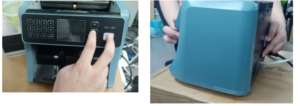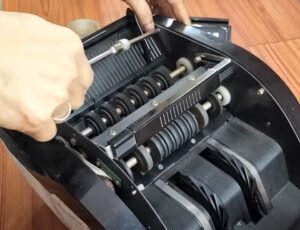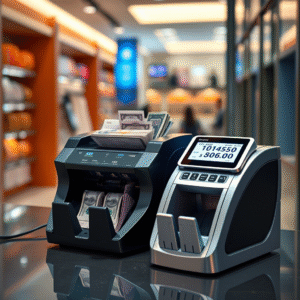Ever wondered where that oddly satisfying “whirring” sound in your favorite electronic music track came from? Or why your bank teller’s money counting machine sounds suspiciously like a vintage arcade game? This article dives into the surprisingly popular trend of using money counting machine sounds as ringtones, exploring its origins, appeal, and potential copyright implications. We’ll also look at how this niche sound has infiltrated various aspects of pop culture, from music production to ASMR.
The Curious Case of the Counting Machine Ringtone
Let’s face it, the sound of money being counted is… well, it’s satisfying. There’s something inherently pleasing about the rhythmic whirring and clicking that accompanies the process. It’s the sound of efficiency, of business, of money. And for some reason, that sound has become incredibly popular as a ringtone.
Where did this trend even come from? It’s hard to pinpoint a single origin, but several factors likely contributed. Firstly, the inherent novelty. It’s not your typical ringtone – it’s not a pop song, a generic chime, or even a nature sound. It’s something unexpected, something that grabs attention.
Secondly, the rise of ASMR (Autonomous Sensory Meridian Response). ASMR focuses on sounds and visuals that trigger a tingling sensation in the head and neck, promoting relaxation and a sense of well-being. The rhythmic and repetitive nature of a money counting machine can be surprisingly effective as an ASMR trigger. Think about it: the consistent, predictable soundscape can be quite soothing.
Thirdly, the sheer ubiquity of these machines. We hear them in banks, grocery stores, convenience stores – they’re a constant presence in our modern lives. This familiarity, combined with the aforementioned satisfaction, makes it a surprisingly relatable and appealing sound.
But beyond just personal preference, the “money counting machine ringtone” has found its way into unexpected corners of popular culture.
From Banks to Beats: The Sound of Money in Music
Believe it or not, the sound of money counting machines has been sampled and incorporated into various music genres. Producers are always looking for unique and interesting sounds to add texture and depth to their tracks, and the distinctive whirring of a money counter fits the bill perfectly.
Think about it: the sound can be layered into a hip-hop beat to emphasize the theme of wealth and success. It can be used in electronic music to create a futuristic, almost robotic soundscape. It can even be subtly incorporated into ambient music to create a sense of unease or tension.
While it’s difficult to track down every instance of this sound being used in music (many producers keep their sampling techniques a closely guarded secret), there are definitely examples out there. Keep your ears open – you might be surprised where you hear it pop up.
Here’s a hypothetical table of where you might find the sound of money counting machines in music:
| Genre | Potential Use | Effect |
|---|---|---|
| Hip-Hop | Layered into the beat, used as a percussive element | Emphasizes themes of wealth, success, and hustle |
| Electronic Music | Used to create a futuristic, robotic soundscape, layered with synths | Adds a unique texture and a sense of mechanical precision |
| Ambient Music | Subtly incorporated to create a sense of unease or tension | Creates a feeling of underlying financial pressure or anxiety |
| Pop Music | Short sample used as an intro or transition | Adds a quirky and unexpected element, grabbing the listener’s attention |
The use of everyday sounds in music is nothing new, of course. From the clanging of pots and pans to the screeching of tires, producers have always found inspiration in the world around them. But the rise of the money counting machine as a legitimate musical element is a testament to the power of sound and its ability to evoke emotions and create unique sonic landscapes.
The Legal Tender of Sound: Copyright Considerations
Now, here’s where things get a little tricky. Can you just record the sound of a money counting machine and use it as a ringtone or in your music? The answer, as with most things copyright-related, is: it depends.
Generally, the sound of a machine itself is not copyrightable. Copyright protects original works of authorship, such as musical compositions, literary works, and visual art. The sound




